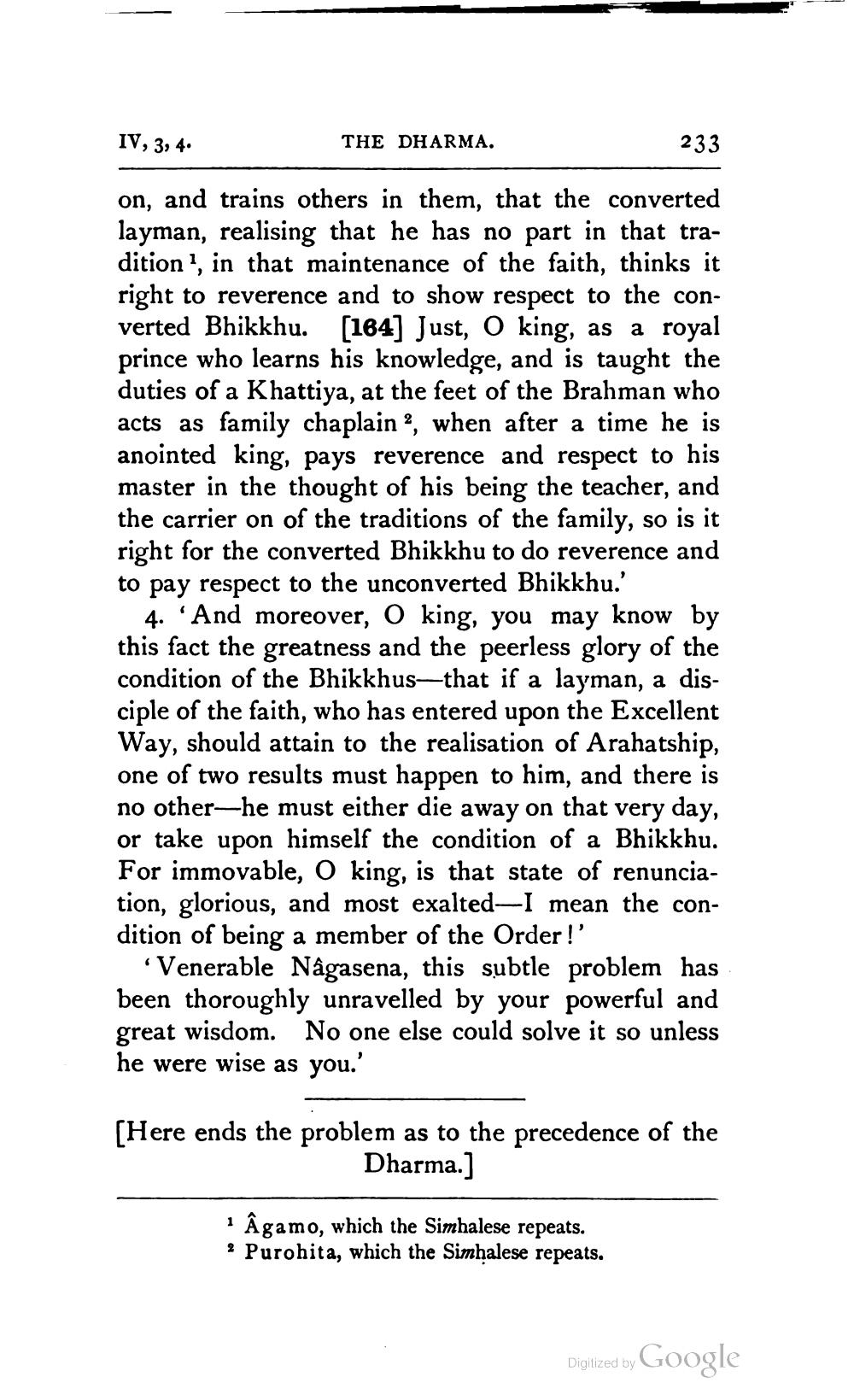________________
IV, 3, 4.
THE DHARMA.
233
on, and trains others in them, that the converted layman, realising that he has no part in that tradition?, in that maintenance of the faith, thinks it right to reverence and to show respect to the converted Bhikkhu. [184] Just, О king, as a royal prince who learns his knowledge, and is taught the duties of a Khattiya, at the feet of the Brahman who acts as family chaplain?, when after a time he is anointed king, pays reverence and respect to his master in the thought of his being the teacher, and the carrier on of the traditions of the family, so is it right for the converted Bhikkhu to do reverence and to pay respect to the unconverted Bhikkhu.'
4. 'And moreover, O king, you may know by this fact the greatness and the peerless glory of the condition of the Bhikkhus—that if a layman, a disciple of the faith, who has entered upon the Excellent Way, should attain to the realisation of Arahatship, one of two results must happen to him, and there is no other-he must either die away on that very day, or take upon himself the condition of a Bhikkhu. For immovable, o king, is that state of renunciation, glorious, and most exalted—I mean the condition of being a member of the Order!'
Venerable Nâgasena, this subtle problem has been thoroughly unravelled by your powerful and great wisdom. No one else could solve it so unless he were wise as you.'
[Here ends the problem as to the precedence of the
Dharma.]
no, which the Simhalese repeats. ? Purohita, which the Simhalese repeats.
Diglized by Google




